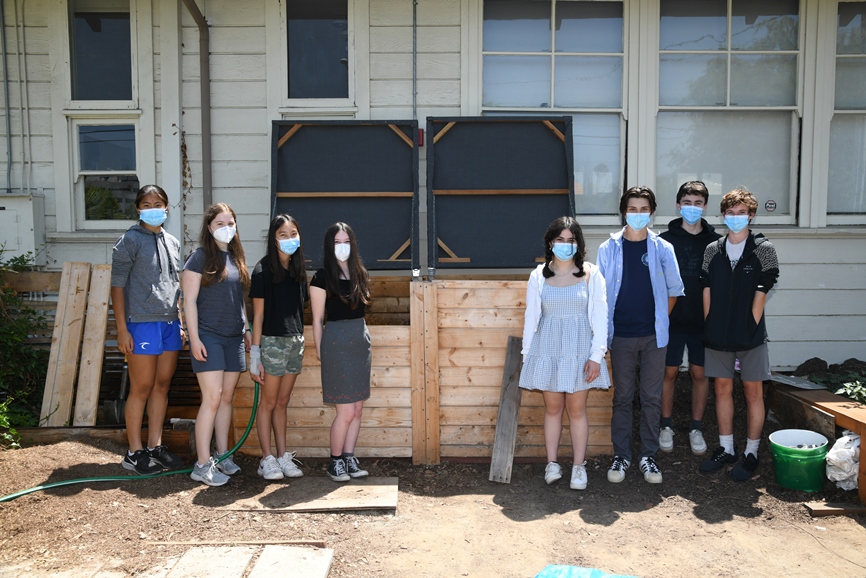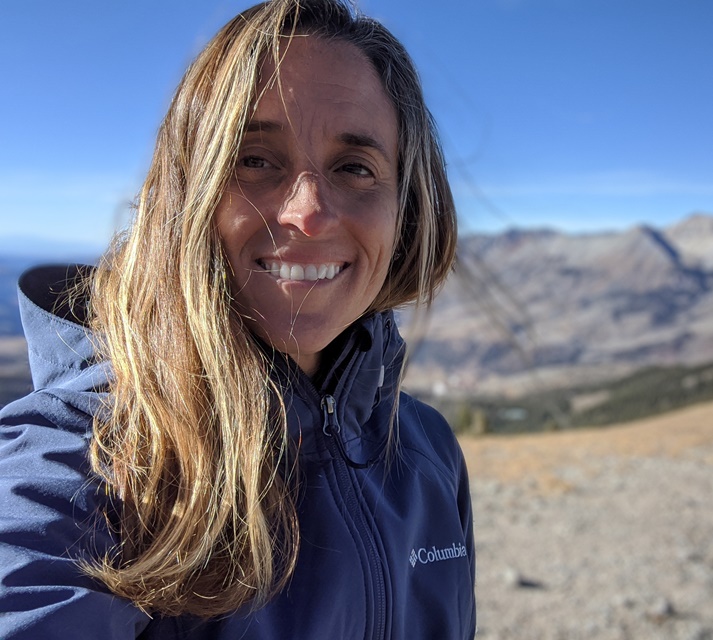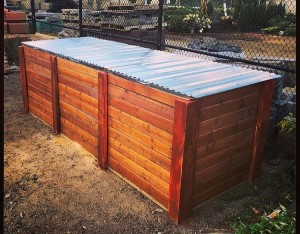|
The 8th Grade Students at Poly had been assigned a project to explore organics diversion alternatives to improve sustainability at the school and reduce their overall carbon footprint. Food waste and yard debris generated on the campus was being hauled 150 miles for disposal, and the cost for disposal had increased year after year.
The students, who call themselves the “Closing The Loop Group”, were divided into three teams to study: 1) the science of composting; 2) regulatory requirements and financial impacts for on-site composting; and 3) practical on-site composting options. The school first became aware of Aerated State Pile (ASP) composting technology through 301 Organics, a consultant for a local project at the Rose Bowl stadium*. Through subsequent online research about ASP composting as an alternative to off-site disposal, students and staff discovered O2Compost and contacted me to schedule a free consultation.
Laura and some of the students scheduled a consultation with me and, at the end of our conversation, I proposed that they apply for a grant for our Micro-Bin Compost Training Program (i.e. following the 10-step process, as described in the previous article).
The students prepared a thorough (and well written) request for proposal and, in turn, I sent them the design drawings, the operations manual, and related documentation for our Micro-Bin System. The students also prepared a PowerPoint Presentation that they gave to Poly's leaders and the facilities management team. The presentation was very well received. As a result, they were awarded $2,000 to cover the cost of constructing two Micro-Bins.
Bin construction was completed by Poly staff and volunteer alumni. Unfortunately, student participation in the start-up of the compost system was delayed for several months due to Covid-19 and quarantine protocols.
The first batch of food waste and shredded landscaping debris was prepared in August 2020 and pile temperatures increased to well over the 131oF threshold for destroying pathogens, parasites, fly larvae and weed seeds. When students returned to campus in spring 2021, a new 6th grade Sustainability Club led the composting effort with food waste they collected through a new lunch sorting station system that they designed. The original group of 8th graders, now high school sophomores, loaded their first O2Compost ASP bin last October with temperatures again soaring well above the 131oF threshold.
A second set of Micro-Bins has recently been constructed for the campus and the project will continue as middle and high school students learn the best "mix recipe" for the specific type of organic feedstock that Poly generates: food waste and landscaping waste. This project also inspired food waste sorting efforts across the entire K-12 campus.
The students created educational videos to teach peers about how capturing food scraps and on-site composting reduce Poly's carbon footprint, combating climate change. Despite the challenges presented by the Covid-19 quarantine, this has been (and continues to be) a remarkably successful pilot project for all concerned. Media outlets have also taken notice of these students’ climate action work through composting, and their project has been highlighted in the Pasadena Star News and most recently by Spectrum News 1 in Los Angeles.
*In 2019, O2compost provided technical support to the lead consultant for the Rose Bowl Stadium Pilot Compost Project, Ms. Christine Lenches-Henkel, with 301 Organics.
|








